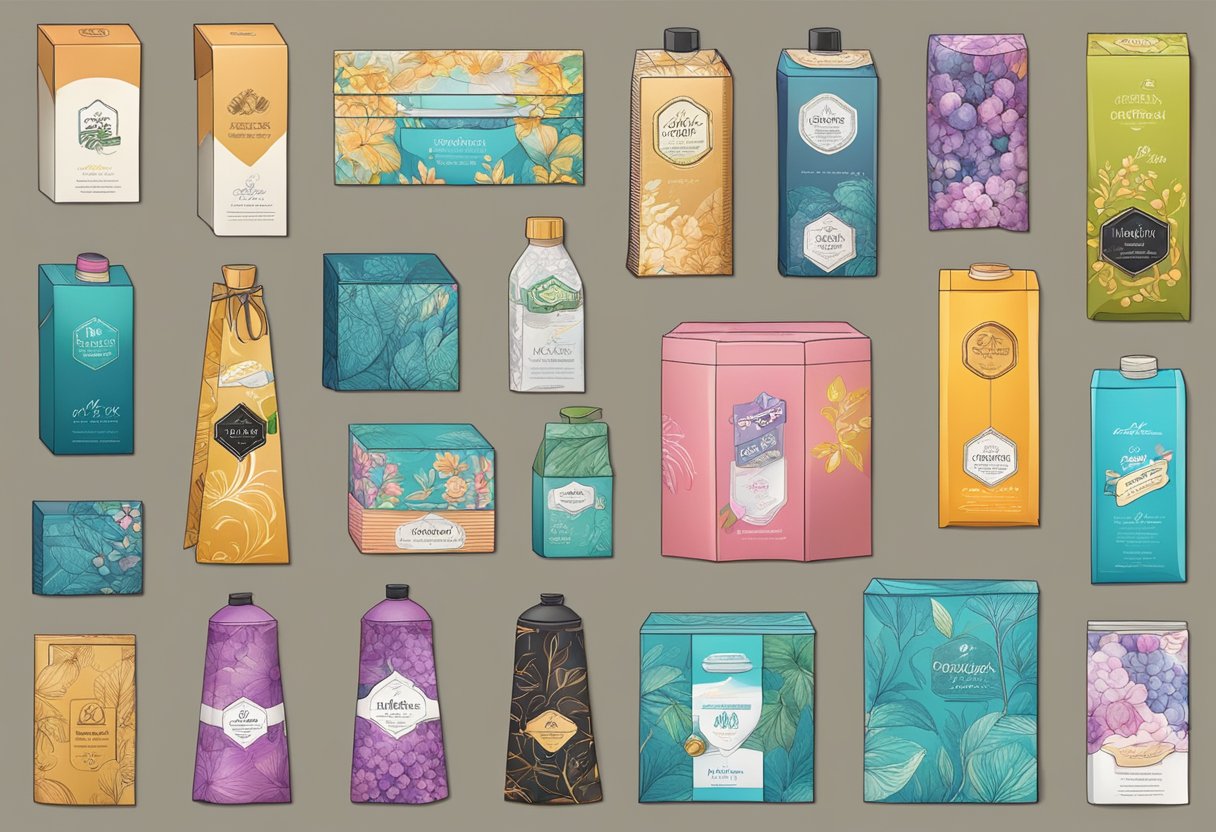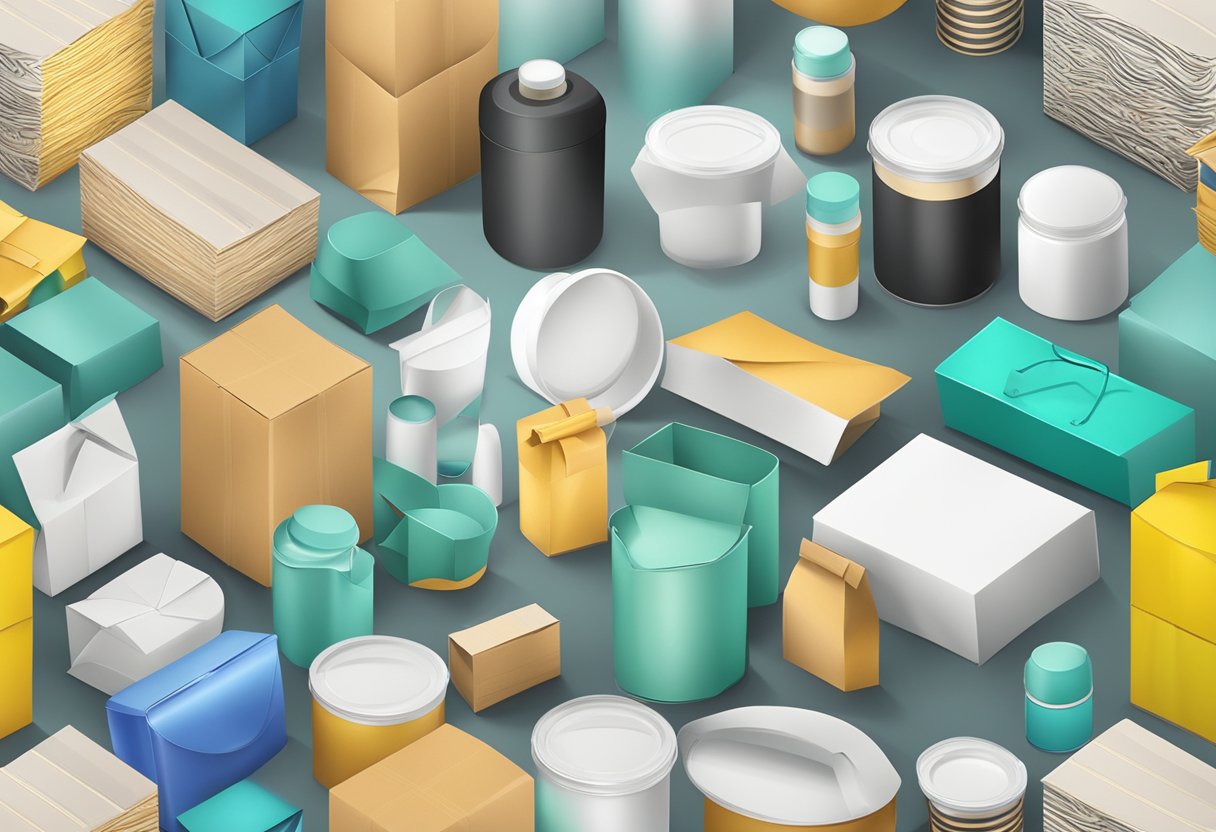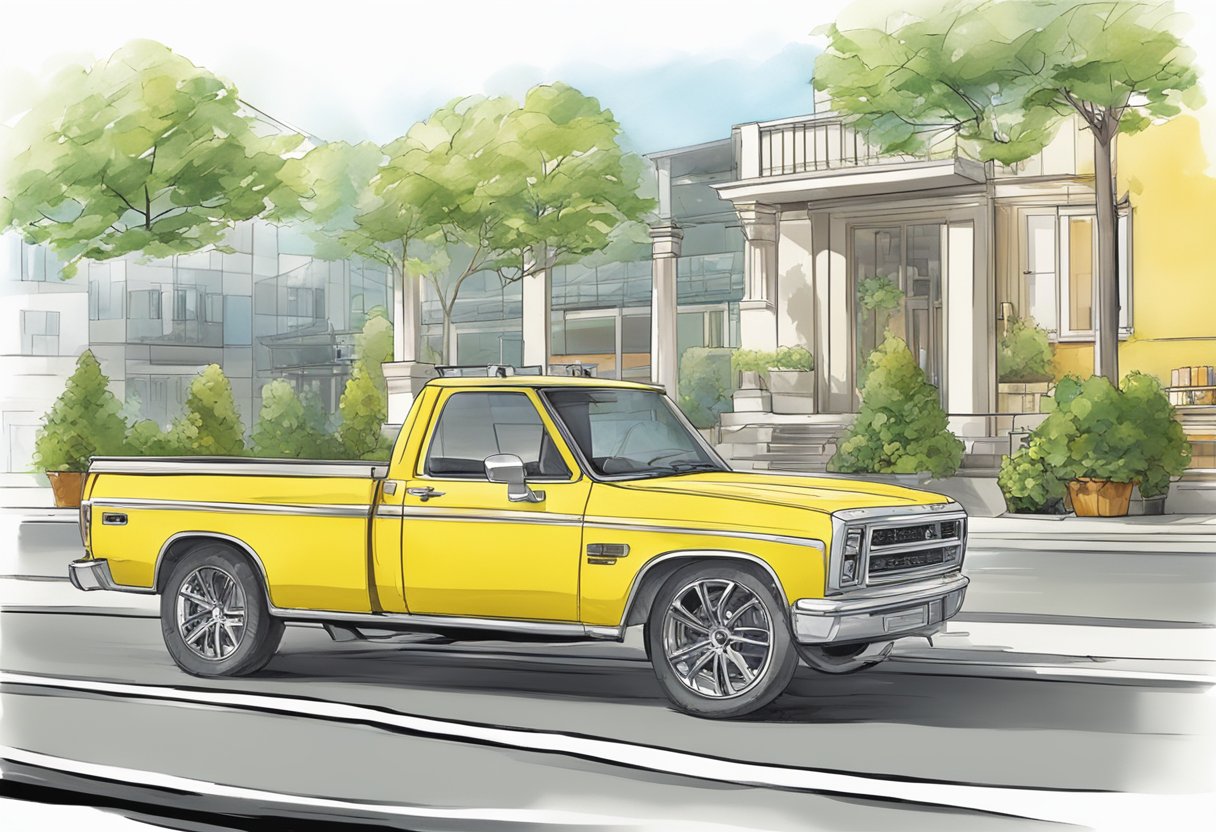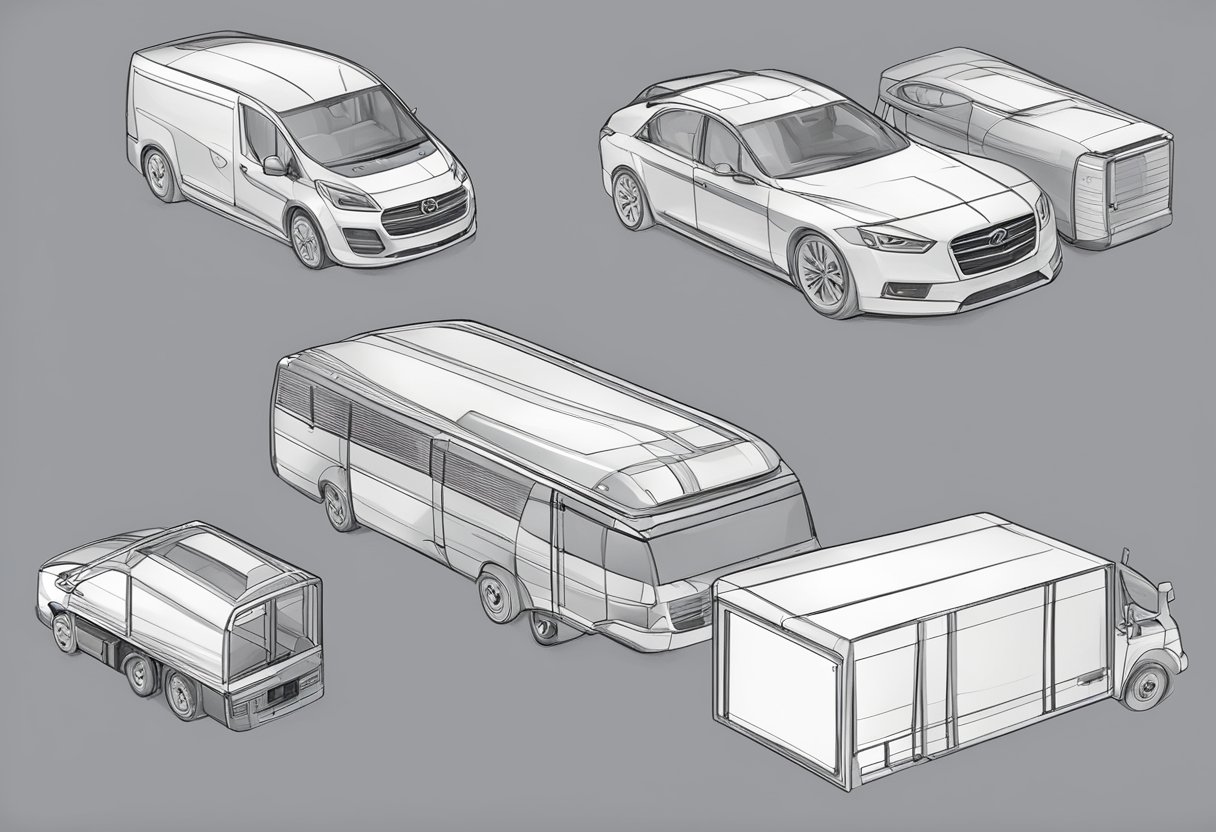Custom packaging is an essential aspect of any small business. It’s a way to differentiate a brand from its competitors and create a memorable experience for customers. Custom packaging can take many forms, from boxes and bags to tissue paper and stickers. It’s an opportunity for small businesses to showcase their creativity and leave a lasting impression on customers.
One of the primary benefits of custom packaging for small businesses is brand recognition. Custom packaging with a logo or unique design can help customers identify a brand and differentiate it from others. It’s an opportunity to showcase a brand’s personality and values, which can help build trust and loyalty with customers. Custom packaging can also create a sense of professionalism and legitimacy, which is especially important for small businesses looking to establish themselves in a competitive market.
Another advantage of custom packaging for small businesses is the ability to tailor packaging to specific products. Different products may require different packaging materials or designs. For example, delicate items may require extra padding or protection, while food products may require specific labeling or packaging materials. Custom packaging allows small businesses to create packaging that is both functional and visually appealing, which can enhance the overall customer experience.
Importance of Custom Packaging for Small Businesses
Custom packaging is an essential aspect of any small business. It can be the difference between success and failure for many businesses. Custom packaging can make customers feel more valued, as they see that the business took the time to create a custom package just for them.
Custom packaging can help small businesses stand out from their competitors. It can help create brand recognition and brand awareness, leading to increased visibility and brand loyalty. Customers are more likely to remember a business that has unique, customized packaging, which can lead to repeat purchases and word-of-mouth advertising.
In the world of ecommerce business, custom packaging is becoming increasingly important. As the ecommerce market gets larger and more saturated, custom packaging for small businesses is becoming key to differentiating and staying ahead of competitors. Custom packaging can help businesses create a memorable unboxing experience for their customers, which can lead to positive reviews, social media shares, and increased sales.
Custom packaging can also help small businesses save money in the long run. By investing in high-quality, durable packaging, businesses can reduce the risk of damaged products during shipping. This can lead to fewer returns and exchanges, which can save businesses time and money.
Overall, custom packaging is an important investment for small businesses. It can help create brand recognition, increase visibility, and lead to increased sales and customer loyalty. As ecommerce continues to grow, custom packaging is becoming increasingly necessary for small businesses to stand out and succeed in a competitive market.
Types of Custom Packaging

Custom packaging is a great way for small businesses to stand out and make a lasting impression on their customers. There are several types of custom packaging available that can be tailored to suit a business’s specific needs and aesthetics. In this section, we will explore three common types of custom packaging: mailer boxes, corrugated boxes, and custom printed boxes.
Mailer Boxes
Mailer boxes are a type of custom packaging that is perfect for shipping small items. They are made from sturdy materials such as corrugated cardboard and come in a variety of sizes and shapes. Mailer boxes are easy to assemble and can be customized with a business’s logo or branding. They are also lightweight, which makes them an affordable shipping option.
Corrugated Boxes
Corrugated boxes are a type of custom packaging that is great for shipping larger items. They are made from corrugated cardboard, which is a strong and durable material that can withstand the rigors of shipping. Corrugated boxes can be customized with a business’s logo or branding, and they come in a variety of sizes and shapes. They are also recyclable, which makes them an eco-friendly packaging option.
Custom Printed Boxes
Custom printed boxes are a type of custom packaging that can be used for both shipping and retail purposes. They are made from sturdy materials such as cardboard or paperboard and can be customized with a business’s logo or branding. Custom printed boxes come in a variety of sizes and shapes, and they can be printed with high-quality graphics and images. They are a great way to enhance a business’s brand identity and create a professional image.
In conclusion, custom packaging is a great way for small businesses to differentiate themselves and make a lasting impression on their customers. Mailer boxes, corrugated boxes, and custom printed boxes are three common types of custom packaging that can be tailored to suit a business’s specific needs and aesthetics. By choosing the right type of custom packaging, small businesses can create a professional image and enhance their brand identity.
Designing Your Custom Packaging
Designing custom packaging for small businesses can be a fun and creative process, but it also requires careful consideration of several factors to ensure that the packaging accurately reflects the brand and product. This section will cover some key elements to keep in mind when designing custom packaging, including choosing the right color, incorporating text and images, and ensuring that the artwork and proof meet the necessary requirements.
Choosing the Right Color
Choosing the right color for custom packaging is important because it can influence how customers perceive the product and brand. When selecting a color, small businesses should consider their brand identity, target audience, and the product itself. For example, if the product is eco-friendly or organic, using green or brown tones may be appropriate. Alternatively, if the product is more luxurious or high-end, using metallic or jewel tones may be more fitting.
It is also important to consider ink coverage when selecting colors. Too much ink coverage can result in bleeding or smudging, which can negatively impact the overall appearance of the packaging. Small businesses should work closely with their packaging design team to ensure that the ink coverage is appropriate for the design and material of the packaging.
Incorporating Text and Images
Incorporating text and images into custom packaging can help to convey important information about the product and brand. Small businesses should consider the size and placement of text and images, as well as the font and color.
When incorporating images, it is important to ensure that they are high quality and have the appropriate resolution for the size they will be printed. Small businesses should also consider the placement of images in relation to text and other design elements.
When incorporating text, small businesses should consider the font and color, as well as the amount of text that will be included. Too much text can be overwhelming and difficult to read, while too little text may not provide enough information about the product.
Artwork and Proof
Before finalizing the design of custom packaging, small businesses should ensure that the artwork and proof meet the necessary requirements. This includes ensuring that the artwork is in the correct format and resolution, and that the proof accurately reflects the final design.
Small businesses should work closely with their packaging design team to ensure that the artwork and proof meet all necessary requirements before finalizing the design. This can help to avoid any issues or delays in the printing and production process.
Overall, designing custom packaging for small businesses requires careful consideration of several factors, including color, text, images, and artwork. By working closely with a packaging design team and keeping these factors in mind, small businesses can create custom packaging that accurately reflects their brand and product.
Quality and Material Considerations

When it comes to custom packaging for small businesses, quality and material considerations are crucial to ensure that the packaging meets the needs of the business and its customers. Here are some important factors to consider:
Quality and Durability
One of the most important considerations for custom packaging is the quality and durability of the materials used. The packaging should be able to withstand the rigors of shipping and handling, and protect the product inside. This is especially important for small businesses that may not have the resources to replace damaged or broken products.
When choosing materials for custom packaging, it is important to consider the type of product being shipped and the shipping method. For example, if the product is fragile or heavy, it may require stronger and thicker materials to prevent damage during shipping. Some common materials for custom packaging include kraft paper, corrugated cardboard, and bubble wrap.
Eco-friendly and Sustainable Options
In addition to quality and durability, small businesses should also consider eco-friendly and sustainable options for their custom packaging. This not only helps to reduce the environmental impact of the business, but it can also appeal to customers who are environmentally conscious.
Some eco-friendly packaging materials include recycled paper and cardboard, biodegradable plastics, and compostable materials. These materials can be just as durable and protective as traditional materials, while also being better for the environment.
When choosing eco-friendly packaging materials, it is important to ensure that they are certified by reputable organizations, such as the Forest Stewardship Council (FSC) or the Sustainable Forestry Initiative (SFI). This can help to ensure that the materials are sourced responsibly and meet certain environmental standards.
Overall, quality and material considerations are crucial for small businesses when choosing custom packaging. By choosing durable and eco-friendly materials, businesses can protect their products and reduce their environmental impact, while also appealing to customers who value sustainability.
The Unboxing Experience
The unboxing experience is the first tangible interaction a customer has with a brand’s product. It is the moment when the customer gets to see, touch, and feel the product. Therefore, it is essential to make this experience as memorable as possible. Custom packaging is an excellent way for small businesses to create a unique unboxing experience that stands out from their competitors.
A well-designed custom package can create a sense of excitement and anticipation for the customer. It can also help to reinforce the brand’s identity and values. This, in turn, can lead to increased brand loyalty. According to a study by Dotcom Distribution, 40% of customers are more likely to make repeat purchases from a retailer that delivers premium packaging.
Custom packaging can also create an aura of exclusivity around the product. When customers receive a package that looks and feels premium, they are more likely to perceive the product as high-quality and exclusive. This can help to justify a higher price point and increase the perceived value of the product.
To create a memorable unboxing experience, small businesses should consider investing in custom packaging that reflects their brand’s identity and values. This can include using unique colors, textures, and materials that align with the brand’s aesthetic. It can also include adding personalized touches such as a handwritten note or a branded sticker.
In conclusion, the unboxing experience is a crucial part of the customer journey. Custom packaging is an effective way for small businesses to create a unique and memorable unboxing experience that can lead to increased brand loyalty and a sense of exclusivity around the product.
Custom Packaging Solutions for Specific Industries

Small businesses in different industries require custom packaging solutions to meet their specific needs. The packaging should be designed to match the product and brand, creating a better buying experience for prospective customers. Here are some examples of custom packaging solutions for specific industries.
Food and Supplements
Custom packaging solutions for food and supplements should be designed to protect the product from damage and contamination while also providing an attractive presentation. The packaging should also be easy to open and resealable to maintain freshness. Some examples of custom packaging solutions for food and supplements include:
- Stand-up pouches with resealable zippers
- Custom printed boxes with UV coating for a glossy finish
- Tamper-evident packaging to ensure product safety
- Clear packaging to showcase the product
Cosmetics
Custom packaging solutions for cosmetics should be designed to protect the product from damage and contamination while also providing an attractive presentation. The packaging should also be easy to open and resealable to maintain product freshness. Some examples of custom packaging solutions for cosmetics include:
- Custom printed boxes with embossing or debossing for a premium look
- Clear packaging to showcase the product
- Custom printed tubes with metallic finishes for a luxurious feel
- Tamper-evident packaging to ensure product safety
Stationery
Custom packaging solutions for stationery should be designed to protect the product from damage while also providing an attractive presentation. The packaging should also be easy to open and resealable to maintain product freshness. Some examples of custom packaging solutions for stationery include:
- Custom printed boxes with spot UV coating for a high-end look
- Clear packaging to showcase the product
- Custom printed envelopes with metallic finishes for a professional feel
- Tamper-evident packaging to ensure product safety
Overall, custom packaging solutions can help small businesses in different industries to create a better customer experience, stand out from competitors, and protect their products during shipping and storage.
Cost Considerations for Custom Packaging

Custom packaging for small businesses can be a great way to differentiate your brand and increase customer loyalty, but it can also be a significant investment. When considering custom packaging, businesses must take into account various factors to ensure that they stay within their budget and don’t overspend.
Budget
The first and most important consideration for businesses looking to invest in custom packaging is their budget. Custom packaging can be more expensive than standard packaging, so businesses must ensure that they have enough funds to cover the costs.
It’s important to note that the cost of custom packaging can vary widely depending on the materials used, the design complexity, and the quantity ordered. Therefore, businesses must carefully consider their budget and determine how much they can afford to spend on custom packaging.
Material Costs
The materials used to create custom packaging can significantly impact the cost. For example, using eco-friendly materials like recycled paper or biodegradable plastics can be more expensive than traditional materials. However, using eco-friendly materials can also be a selling point for customers who value sustainability.
Businesses must also consider the cost of shipping and handling the materials. Some materials may be more delicate or require specialized handling, which can increase the cost of the packaging.
Design Costs
The design of custom packaging can also impact the cost. Complex designs or intricate details may be more expensive to produce than simple designs. Additionally, businesses must consider the cost of hiring a designer or design agency to create the packaging.
To keep costs down, businesses can consider using pre-designed templates or working with a packaging supplier that offers design services at a lower cost.
Quantity Discounts
Another cost consideration for custom packaging is the quantity ordered. Many suppliers offer quantity discounts, so businesses can save money by ordering larger quantities of custom packaging. However, businesses must also ensure that they don’t order more packaging than they need, as this can lead to wasted resources and increased costs.
In conclusion, businesses must carefully consider their budget and the various cost factors associated with custom packaging. By doing so, they can ensure that they invest in packaging that not only looks great but also fits within their budget.
Leveraging Custom Packaging for Branding
Custom packaging is an effective way for small businesses to enhance their brand recognition and establish their brand identity. By creating branded packaging, small businesses can make their products stand out in a crowded market and make a lasting impression on their customers.
One of the primary benefits of custom packaging is that it provides a unique opportunity for small businesses to showcase their brand. By incorporating their brand elements like logos, taglines, and brand colors, they can create a cohesive and recognizable packaging design that reflects their brand identity.
Branded packaging also helps small businesses to create a memorable unboxing experience for their customers. When customers receive a package that is beautifully designed, they are more likely to share it on social media, which can help increase brand awareness and attract new customers.
In addition to enhancing brand recognition, custom packaging can also help small businesses to establish their brand identity. By creating a consistent packaging design across all their products, they can establish a strong brand identity that customers can easily recognize and associate with their business.
Overall, custom packaging is an effective way for small businesses to leverage branding and establish their brand identity. By creating branded packaging that reflects their brand identity, small businesses can enhance their brand recognition and create a memorable unboxing experience for their customers.
FAQs on Custom Packaging for Small Businesses
Custom packaging is an important aspect of any small business. It can help businesses stand out from the competition and create a memorable experience for their customers. Here are some frequently asked questions about custom packaging for small businesses:
What is custom packaging?
Custom packaging is packaging that is specifically designed and created for a particular product or brand. It can include custom shapes, sizes, colors, and branding elements like logos and slogans.
Why is custom packaging important for small businesses?
Custom packaging can help small businesses differentiate themselves from their competitors and create a memorable experience for their customers. It can also help protect products during shipping and handling, which can reduce the likelihood of damage or returns.
How much does custom packaging cost?
The cost of custom packaging can vary depending on a variety of factors, including the type of packaging, the quantity ordered, and the complexity of the design. Small businesses should budget for custom packaging as part of their overall marketing and branding expenses.
What are the most common types of custom packaging?
There are many different types of custom packaging that small businesses can choose from, including:
- Custom boxes
- Custom bags
- Custom labels and stickers
- Custom tissue paper and wrapping paper
- Custom shipping envelopes and mailers
Where can small businesses order custom packaging?
There are many companies that specialize in custom packaging for small businesses. Some popular options include:
- ShipBob
- Shop Rigid Boxes
- Zenpack
- Arka
Small businesses should research their options and choose a company that offers high-quality packaging at a reasonable price.
How can small businesses design custom packaging that reflects their brand?
Small businesses should work with a designer or packaging company to create custom packaging that reflects their brand and messaging. This can include incorporating brand colors, logos, and slogans into the design, as well as choosing packaging materials that align with the brand’s values and aesthetic.
